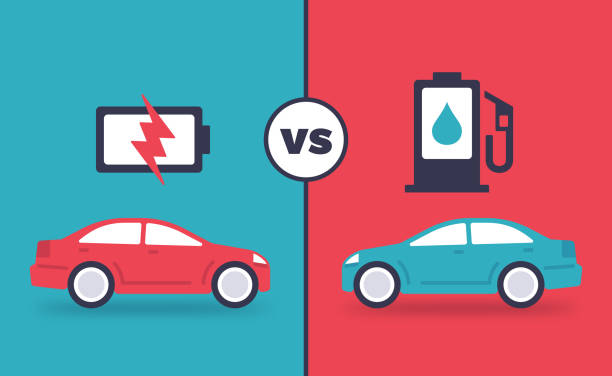
The automotive industry is undergoing a significant transformation with the rise of electric cars, challenging the conventional dominance of petrol-fueled vehicles. In this article, we will explore the key differences and advantages of petrol cars and electric cars, enabling consumers to make informed decisions about their transportation choices.
- Fuel Source:
Petrol Car: Petrol cars rely on internal combustion engines, which burn gasoline to generate power.
Electric Car: Electric cars are powered by electricity stored in batteries. They utilize electric motors for propulsion.
- Environmental Impact:
Petrol Car: Petrol cars produce greenhouse gas emissions, contributing to air pollution and climate change.
Electric Car: Electric cars produce zero tailpipe emissions, making them a cleaner and more environmentally friendly option. However, their environmental impact depends on the source of the electricity used for charging.
- Operating Costs:
Petrol Car: Petrol is a fossil fuel, and its price can fluctuate due to geopolitical factors. Additionally, petrol cars require regular maintenance and have higher operating costs over time.
Electric Car: Electricity is generally cheaper and more stable in price compared to petrol. Electric cars also have fewer moving parts, reducing maintenance costs.
- Fueling and Charging:
Petrol Car: Refueling a petrol car is quick and widely available at gas stations.
Electric Car: Charging an electric car can take longer, especially with standard home chargers. However, fast-charging stations are becoming more prevalent, reducing charging time significantly.
- Range:
Petrol Car: Petrol cars typically have a longer driving range on a single tank of fuel.
Electric Car: Electric cars have a limited range per charge, but this is steadily improving with advancements in battery technology. Many electric cars now offer competitive ranges for daily driving.
- Performance:
Petrol Car: Petrol cars are known for their quick acceleration and high-speed capabilities.
Electric Car: Electric cars are celebrated for their instant torque and quiet, smooth acceleration. Some high-end electric cars offer impressive acceleration and top speeds.
- Maintenance:
Petrol Car: Petrol cars require more frequent maintenance, including oil changes, air filter replacements, and exhaust system repairs.
Electric Car: Electric cars have fewer moving parts, reducing the need for regular maintenance. Maintenance is typically focused on the battery and electric motor.
- Incentives and Rebates:
Petrol Car: There are no specific incentives or rebates associated with petrol cars.
Electric Car: Many governments offer incentives and rebates to encourage the adoption of electric vehicles, making them more financially attractive.
- Infrastructure:
Petrol Car: Petrol refueling infrastructure is well-established and readily available worldwide.
Electric Car: Charging infrastructure is growing rapidly, with an increasing number of public charging stations, making electric cars more practical for long-distance travel.
- Long-Term Sustainability:
Petrol Car: The long-term sustainability of petrol cars is a concern due to the depletion of fossil fuels and their environmental impact.
Electric Car: Electric cars are considered more sustainable in the long run, particularly as the energy grid becomes cleaner and more renewable energy sources are integrated.
In conclusion, the choice between a petrol car and an electric car depends on various factors, including individual preferences, driving needs, environmental concerns, and budget. Petrol cars offer a well-established infrastructure and long driving ranges, while electric cars are gaining popularity due to their lower operating costs, reduced environmental impact, and government incentives. As technology continues to evolve, the gap between these two options may continue to narrow, and consumers will have even more choices in the future. Ultimately, the decision should be based on a thorough consideration of individual priorities and values.